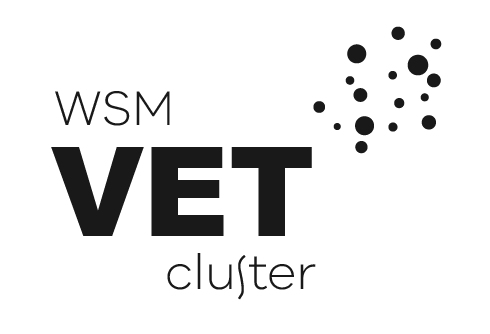All about VET
What is the WSM VET Cluster?
The WSM VET Cluster is a partnership between 18 senior secondary education providers (member schools) within the Wimmera Southern Mallee region. Participating members are from all education sectors; government, catholic and independent schools. We also have participation from students in non-cluster-member schools from other regions where space permits.
Training is delivered by Federation University (Horsham Campus), Skillinvest, Longerenong College and Horsham College.
Participating Member Schools:
- Ararat College
- Balmoral Community College
- Birchip P-12 School
- Dimboola Memorial Secondary College
- Edenhope College
- Goroke P-12 College
- Holy Trinity Lutheran College, Horsham
- Hopetoun P-12 College
- Horsham College
- Horsham Special School
- Kaniva College
- Marian College
- Murtoa College
- Nhill College
- Rainbow P-12 College
- Stawell Secondary College
- St Brigid’s College, Horsham
- Warracknabeal Secondary College
The WSM VET Cluster is coordinated by Wimmera Southern Mallee LLEN. (WSMLLEN)
What is VET Delivered to Secondary Students? (VDSS)
Vocational Educational and Training, (VET), programs can be undertaken as part of secondary school studies. VET programs offer students nationally or state recognised vocational certificates, which are endorsed for recognition in the Victorian Certificate of Education (VCE), Victorian Certificate of Education; Vocational Major (VCE:VM) or the Victorian Pathway Certificate (VPC) from the Victorian Curriculum and Assessment Authority (VCAA).
Students enrolled in VET may also combine study and employment through School to Work programs while they undertake their senior secondary studies.
A VET Delivered to Secondary Students program is usually made up of VET units of competency, delivered by a registered training organisation (RTO) to students at the RTOs campus. Although some schools may wish to deliver a VET course at their own school.
What are the benefits of doing VET?
VET increases students’ learning potential by:
- Broadening senior pathway options
- Assisting in transition from school to work
- Multiplying post-school opportunities and employment prospects
- Providing the opportunity to trial a career and helping students explore possible areas of interest which promote further study and work choices
- Allowing students to develop strong links with industry and local community employers, i.e. students may be offered part-time/casual work
- Developing students’ capacity to cooperate, work in a team, make decisions, problem-solve and develop leadership skills
- Helping students to gain confidence, communication, skills and knowledge of employers’ expectations in a real adult working environment
- Fostering positive feedback by enabling students to demonstrate specific skills and competency
What qualifications will I get from a VET course?
VET gives national or state qualification.
Upon successful completion of the program, students are awarded a nationally or state-accredited vocational training certificate or a Statement of Attainment.
VET qualifications may articulate directly into further education and training at TAFE through documented pathway agreements.
VET provides access to a range of different technologies related to the type and place of work.
How does VET fit in with my school certificate?
VCE:VM – VET programs contribute by providing credit towards the Work Related Skills and Industry Specific strands within the VCE:VM. Two credits are awarded on successful completion of 180 nominal hours of accredited VET curriculum. VET is a compulsory part of the VCE:VM certificate.
VPC – VET is not a requirement for students studying the VPC, however if a VET subject is undertaken, it will contribute one credit for every 90 hours of study.
VCE – some VET programs are approved by the Victorian Curriculum and Assessment Authority (VCAA) and can provide credit towards the student’s ATAR via either scored assessment or a 10% increment (see below).
Scored Assessment – courses that offer scored assessment will contribute directly to the student’s ATAR either as one of the primary four studies or as a fifth or sixth study. Students undertaking scored assessment as part of their VET course will be assessed via school-assessed coursework and an end-of-year examination set by the VCAA. Students must be registered for scored assessment with their RTO.
10% Increment – where a VCAA approved course does not offer scored assessment but does include a Units 3 and 4 sequence, the student is eligible to receive an increment of 10% of their average primary four ATAR subject scores if they successfully complete the Units 3 and 4 sequence.
Block Credit Recognition – For VET courses not approved by the VCAA, students will be eligible for credit towards their VCE for successful completion of units of competency/modules within their VET subject. For every 90 nominal hours of study completed, students will be eligible for a unit of credit at:
VCE Units 1 and 2 level for modules completed at Certificate II level
VCE Units 3 and 4 level for modules completed at Certificate III level.
Details of the credit provided by each course towards a students senior secondary pathway is included in the course information on the course pages.
This website outlines a selection of VET programs available to students at member schools.
Read the requirements of your selected program carefully.
Please note the times, venues and course outlines are subject to change and will be confirmed before the commencement of the course.
How much reading, writing and maths is involved in VET?
Some VET courses require a high level of literacy and/or numeracy. While VET programs incorporate hands-on training, they also include theory-based training designed to support practical skills. Students who have low levels of literacy and/or numeracy may find it difficult to successfully complete certain VET courses. If a student is eligible for funding to provide education support at their school, the school must ensure the ES also accompanies the student when they attend VET classes.
VET Course Requirements
VET Course Requirements
Students enrolling in a VET program through the WSM VET Cluster will be required to complete a Code of Conduct. Further to this, additional course requirements set out by the WSM VET Cluster must be adhered to. It is important that parents and students take time to read the following course requirements before submitting an enrolment form.
Absences
Students are required to notify their school VET Coordinator of their absence in advance.
Punctuality
All students are expected to arrive on time to class. Non-adherence to set class times will be reported to the student’s home school.
Work Requirements
All tasks as assigned by the program teacher are to be completed by the due date. Refer to the Registered Training Organisation’s policies in relation to resitting of assessments.
How much will my course cost?
Course Costs
Courses may attract fees for materials, books and equipment that are to be paid by the students. Costs will vary according to the materials required for each course.
* Please note: course costs on this site are subject to change.
Student Progress Reports
All students undertaking a VET course will receive official written progress reports. These reports are issued by the respective training providers for each course and supplied to the students’ home school. Parents will receive a copy of these reports in term two and four. Completed certificates or statements of attainment will be sent directly to students’ home school at the completion of the program.
Code of Conduct
To ensure the success, continuity and availability of VET programs to all students, it is imperative that students abide by the program trainers’ rules and the policies and procedures of the host school or registered training organisation whenever they are on site. This includes meeting Occupational Health and Safety requirements in and out of the classroom. Attitude and behaviour are to be at a high standard.
You will be required to agree to abide by the Student Code of Conduct when you apply for a course.
The Code of Conduct also applies to students while they are travelling on public transport to and from their course.
Withdrawal from a VET Course
VET programs are successful because students are able to access courses offered by member schools. It should be noted by students and parents that failure to abide by the course requirements and the Code of Conduct may result in a student being withdrawn from a course.
Victorian Training Guarantee
If you are enrolled at a school, you will not be able to receive a government-subsidised training place for a course through the Victorian Training Guarantee, unless you are undertaking the course as part of a School-Based Apprenticeship or Traineeship. The Government supports schools in other ways to offer vocational training to their students, so you should discuss all your options with your school.
Access and Equity
WSM VET Cluster is committed to the goals of access and equity and aims to provide opportunities for VET students, VET program and WSM VET Cluster staff that foster fairness, equity, and respect for social and cultural diversity that is free from discrimination, harassment and vilification.





